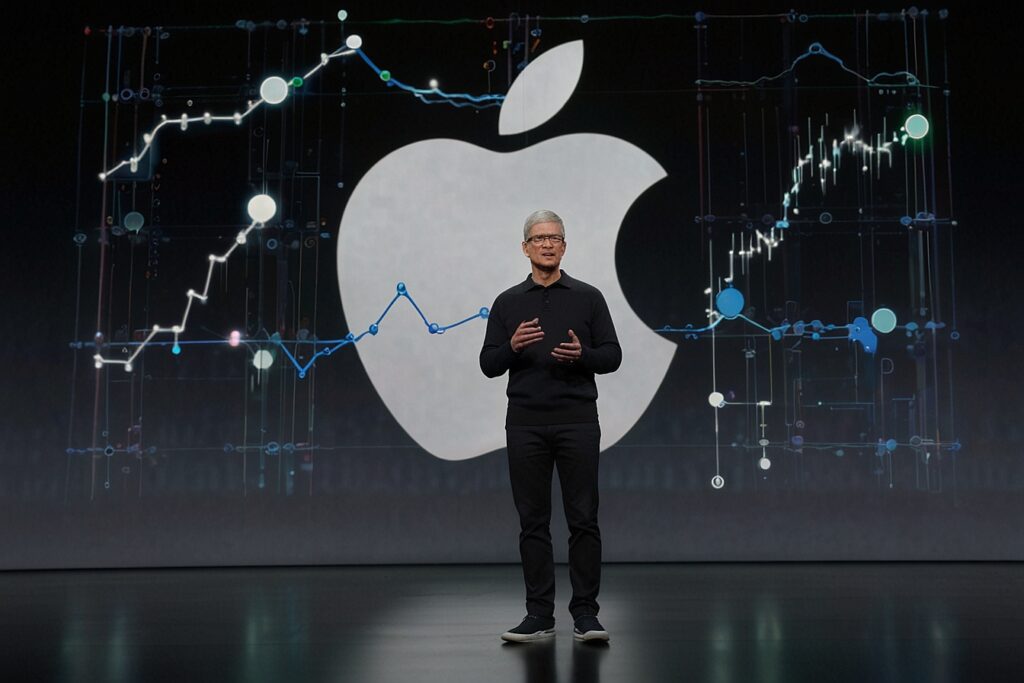
TL;DR
- Apple commits to “significantly growing” its AI investments across devices and services
- AI-related capital expenditures are increasing, with more M&A activity to support growth
- Over 20 new Apple Intelligence features launched; more expected by year-end
- Siri’s full AI upgrade delayed to 2026; Tim Cook defends Apple’s cautious rollout strategy
- Apple delivered stronger-than-expected iPhone sales and record Q3 revenue
Apple Reallocates Talent, Ramps Up AI Focus
Apple CEO Tim Cook confirmed during the Q3 2025 earnings call that Apple is accelerating its AI initiatives by reallocating significant internal resources.
“We are embedding AI across our devices, platforms, and company-wide,” said Cook. “We are also significantly growing our investments.”
He further emphasized the importance of usability in Apple’s approach, adding that AI advancements must remain accessible and easy to use, aligning with the company’s long-standing product philosophy.
M&A and CapEx Surge to Support AI Rollout
Apple disclosed a notable increase in capital expenditure (CapEx), tied to expanding AI infrastructure. Although the company maintains a hybrid investment model — relying partly on third-party capital outlays — Cook noted Apple is internally stepping up AI resourcing.
In a pre-call interview with CNBC, Apple shared it has already acquired seven companies in 2025. While none were significant in monetary value, Cook explained the company is buying startups at a pace of “one every several weeks” to expand its AI capabilities.
Siri Upgrades Pushed to 2026 Amid Industry Pressure
While rivals like Meta and OpenAI aggressively release new AI tools, Apple is deliberately pacing its product announcements. Critics argue Apple has lagged behind in the AI arms race, pointing to unshipped AI features and a stalled Siri upgrade previewed earlier this year.
Cook defended this timeline:
“Launching the wrong features just to be first would be a mistake,” he said.
Apple has rolled out over 20 Apple Intelligence features so far — including visual cleanup, writing tools, and context-aware suggestions. Upcoming tools like live translation and an AI-powered workout assistant are still scheduled for late 2025, but a personalized Siri won’t debut until 2026.
Cook Rejects Meta’s AI Device Prediction
Meta CEO Mark Zuckerberg recently predicted that AI glasses would replace phones as the dominant interaction platform for generative AI tools. Cook rejected that notion:
“It’s difficult to see a world where iPhone’s not living in it,” he said, suggesting future AI hardware will complement rather than replace the iPhone.
Cook declined to comment on which specific AI technologies Apple believes will eventually become commoditized, saying that would reveal competitive strategy.
Apple AI and Q3 2025 Highlights
| Metric | Value | Source |
| AI Features Launched | 20+ | Apple |
| Siri AI Update ETA | 2026 | Bloomberg |
| Acquisitions in 2025 | 7 (as of July) | CNBC |
| iPhone Revenue (Q3 2025) | $44.6 billion (up 13% YoY) | Apple Earnings |
| Total Q3 2025 Revenue | $94 billion | Apple |
Strategic Patience or Missed Momentum?
Apple’s cautious AI rollout comes at a time when generative AI is fundamentally reshaping consumer electronics. While Microsoft, Google, and Meta push weekly updates to LLMs and wearables, Apple’s more deliberate stance invites both skepticism and confidence in long-term success.
The company’s Q3 results suggest that while Apple may not be first to market, it is laying strong groundwork for a deeper and more integrated AI future — especially with the iPhone still at the center.





